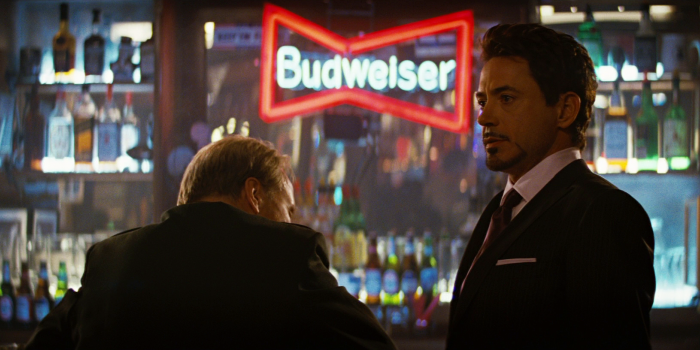
The Bitter Tea of General Yen (1933)
Cast: Barbara Stanwyck, Nils Asther, Toshia Mori
Directors: Frank Capra
Country: USA
Genre: Drama | Romance | War
Websites: TIFF
Editor’s Notes: The following review is part of our coverage for TIFF’s Ball of Fire: The Films of Barbara Stanwyck. For more information on upcoming TIFF film series visit http://tiff.net and follow TIFF on Twitter at @TIFF_NET.
Even in the context of liberalized and freewheeling Pre-Code Hollywood, The Bitter Tears of General Yen stands out. A daring story of forbidden attraction between an American Christian missionary and a Chinese warlord, the film was the first to open at Radio City Music Hall in 1933 but proved controversial and failed at the box-office. Both director Frank Capra and star Barbara Stanwyck nevertheless remained quite proud of their work and blamed its financial failure on a cultural backlash. Today, more opprobrium is warranted for its Orientalist stereotyping and Swedish lead actor (Nils Asther) made up in yellowface than for its depiction of interracial romance, but Bitter Tea still retains an overwhelming aesthetic power and exudes an intriguing sexual perversity. Both Asther and Stanwyck, but especially the latter, transcend the potential for overheated melodrama with astounding delicacy, and Capra revels in a baroque style unheard of in the rest of his career.
… Bitter Tea still retains an overwhelming aesthetic power and exudes an intriguing sexual perversity.
The Bitter Tea of General Yen opens in the hellish chaos of the Chinese Civil War in the 1920s, refugees fleeing Shanghai through fire and rain. Capra deftly establishes a myriad of dynamics at play in the first few scenes: a gregarious wedding party for do-gooder missionary Bob Strike (Gavin Gordon) and his soon-to-be bride Megan Davis (Stanwyck) contrasts with the tumult outside; the guests discuss the cruelty of China while oblivious to the victims of the war just beyond the walls; the car of the ruthless, rebellious, and refined General Yen (Asther) runs over Megan’s young rickshaw driver, and the two briefly exchange words over the value of life. Megan manages to meet up with Bob in safety, but he immediately heads back out with her in tow to rescue orphans caught in the crossfire. They need permission for passage from the general, who produces an untranslated note saying “This fool prefers civil war to the loving arms of his bride,” to be presented to any soldiers in their way. This cynical play results in Megan and Bob being separated in the ensuing rescue attempt, and she is knocked unconscious in the fray and eventually whisked away by Yen to his exquisite palace, an altogether different kind of safe haven until the war dies down. It is in this isolated dream world of shimmering light and gauzy atmosphere that Megan and General Yen discuss the world and build their richly ambivalent relationship, each one challenging the other to question their long-held assumptions. Capra and his crew (especially cinematographer Joseph Walker) make General Yen’s palace transfixing yet threatening, a fantasy of comfort within a world gone mad.

Megan is the audience surrogate, a Western Christian dropped into an exotic and alluring new environment. Stanwyck is outstanding as the naive but defiant young woman confronted with a living embodiment of her culture’s hypocrisies, seduced by both the words and ideas of her elegant captor. She could play worldly and wisecracking when it suited the role — Ball of Fire and The Lady Eve are the paradigmatic examples — but here she remains achingly vulnerable to Yen’s sophisticated eroticism without seeming like a mere victim. She appears to be discovering herself throughout the film, considering and absorbing with fewer and fewer prejudices what she and General Yen discuss. Asther as Yen ably compensates for his makeup and dodgy accent with an understated grace and wit, undercutting Megan’s received notions at every turn. Well-rounded supporting characters connected to Yen’s palace played by Toshia Mori and Walter Connolly bring emotional texture to what otherwise could have been a one-dimensional battle between Eastern and Western sensibilities. Instead, no characters merely fulfill their expected or preordained roles based on cliché.
Best known for screwball farces and sentimental slabs of Americana, the Sicilian émigré never again reached the romantic or aesthetic heights of Bitter Tea’s boundary-pushing love story.
One scene, maybe the most famous and incendiary in the film, brings to visual life the emotional conflict at play within Megan Davis. Having dozed to the sensual frolics of men and women just outside Yen’s palace, she fantasizes being threatened in bed by a stylized General Yen as a stereotypical vision of the “yellow peril,” wielding buck teeth and elongated fingernails. Suddenly a mysterious masked figure comes to her rescue and vanquishes the Fu Manchu-esque villain. Megan’s adoring eyes sparkle as he reveals himself to be the suave General Yen of her imagination, both repellant and attractive to her innermost purity. Their embrace is as unsettling to her consciousness as it probably was to the audience of 1933, and in 2015 the unease arises more from the power dynamics at play than from the racial tension (although a romantic couple consisting of an Asian man and a Caucasian woman is still mostly unknown on-screen even today).
Megan’s unconscious stirrings of love, lust, and admiration color her waking life from then on. Her ingrained fear of the Oriental Other is further broken in the wake of Yen’s concubine’s (Mori) betrayal, unwitting aided by her own actions, and the collapse of his fortune and army. Confronted by this imminent catastrophe, Yen first seems intent on destroying Megan, body and soul, but then reveals his own wish for suicide in order to embrace her in the afterlife. This burst of feeling drives Megan to clothe herself in the traditional dress she had avoided wearing during her semi-self-imposed captivity and placing herself at Yen’s side. Aided by the remarkable lighting and decor, Stanwyck exhibits her natural glamor and unconventional beauty in this penultimate scene, readying herself for the real world manifestation of her erotic dream. But Yen sacrifices himself with his own bitter, poisoned tea, leaving Megan shaken and forever changed. She remains silent for the remainder of the film, consisting of a scene on a boat bound for safety and a drunken, wistful monologue delivered by Jones (Connolly), Yen’s wily American financial adviser. He opines on what path her life will take and what form Yen’s spirit is now in, but she merely looks ahead, filled with a stoicism as enigmatic as Greta Garbo’s at the end of Queen Christina.
Had Frank Capra continued in this arty, sensual, and complex vein, who knows what he could have accomplished (his other earnest critique of Eastern and Western relations, 1937’s Lost Horizon, was also a financial flop). Best known for screwball farces and sentimental slabs of Americana, the Sicilian émigré never again reached the romantic or aesthetic heights of Bitter Tea‘s boundary-pushing love story. Even had he attempted to do so, the soon-to-be more strongly enforced Hays Code would have inevitably stifled the result’s most interesting and troubling aspects. Even today, with looser standards and fewer taboos, sex and race remain the most uncomfortable cultural subjects in American society, and The Bitter Tea of General Yen, for all of its time-bound political incorrectness, tackles them head-on with a breathless fervor and striking elegance.
Even today, with looser standards and fewer taboos, sex and race remain the most uncomfortable cultural subjects in American society, and The Bitter Tea of General Yen, for all of its time-bound political incorrectness, tackles them head-on with a breathless fervor and striking elegance.



